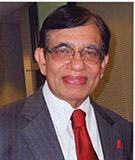
CoronaVirus Pandemic – XVI

What is ‘Long Covid-19’?
When 47-year-old T.J. developed symptoms of slight fever, cough, sore throat and a little loss of smell, he immediately got tested for Covid-19, which as expected was positive. And then he became short of breath and soon was hospitalized briefly to be treated with seemingly good recovery. Being young and otherwise healthy, he thought he should be back to his normal self. But some of his symptoms like fatigue and shortness of breath persisted and he also developed intermittent memory lapses, quite unusual for him. All these led to further doctor’s visits, tests and treatment. And the final conclusion of the specialists who treated him was that T.J. was suffering from a special complication called “Long Covid-19,” a condition that has become the focus of much attention and debate recently.
At the beginning of 2021, we hoped the pandemic would be winding down by this time but instead new surges from variants like Delta have gripped the nation and suddenly we are back to square one. And this after 1½ years into the pandemic! Even in our rural Hernando County hospitals, majority of the admissions are Covid-related and ‘tent hospitals’ are now being re-introduced to handle the unexpected load! Sadly, most of these patients are unvaccinated. So, it’s critical for everyone to get vaccinated to prevent the infection or at least mitigate its effects.
Originally, we hoped that the infection would be mild and uncomplicated except in older people and in those who have immune deficiency for one reason or other. But it’s not that simple. Many young adults and children are suffering from severe infections from the vicious Delta variant leading to serious complications. And many of those who have recovered from Covid-19 are still experiencing some symptoms – what is now well recognized as a post-Covid condition, referred to as "long Covid." It’s important for all those who have recovered to be aware of these symptoms.
Some of the most common symptoms of ‘long Covid’ include shortness of breath, fatigue and cognitive dysfunction, which is called brain fog. However, many more symptoms have been reported and the list includes intermittent chest pain, difficulty in speaking, anxiety or depression, even panic attacks, muscle aches, fever, loss of smell and taste.
In a recent study of 669 patients diagnosed with Covid-19, nearly a third of the patients developed symptoms of long Covid-19. Dr Mary Barsanti, M.D., assistant professor: of Infectious Diseases at Loyola Medical Center, Chicago, said: “What I have observed in my practice is: These patients seem to suffer from an array of symptoms that include incredible amounts of fatigue, some shortness of breath even on mild exertion (but this is not from heart failure), occasional night sweats, at times nonspecific joint pains and even rashes. An interesting and uncomfortable feature of this disease is some develop what is called ‘brain fog’ that involves difficulty in concentration, occasional memory loss and even cognitive decline. And yet there are no identifiable localizing lesions in the brain.”
So, how do you treat this condition? Patients often get agitated when they realize that after good recovery, symptoms still persist. So, the most important aspect of treatment is to reassure them that this will eventually subside and is not due to any serious complication. “Recognizing the persistence of symptoms could legitimize patients' concerns in an unknown and new disease. Adequate communication can provide reassurance, reduce anxiety, and potentially optimize recovery,” as per one expert. Supportive care with good nutrition, cardiac rehabilitation, psychiatric support if needed – all will go a long way toward the recovery. For some patients, gentle regular physical exercise appears to be beneficial – they seem to get out of this exhaustion quickly and it lessens the extent of brain fog. Although these symptoms may last for a few weeks to months, they tend to subside eventually.
As I mentioned earlier, the powerful Delta variant is spreading rapidly and Florida hospitals are running out of beds. So, you want to be extremely careful at this time. If you’re not vaccinated yet, run and get both of your shots. And those who have been vaccinated earlier, it may be time to get your booster shot and Walgreens and other pharmacies have started giving it. And continue to observe all the mitigation measures diligently.
To be continued …
M.P. Ravindra Nathan, M.D., is a cardiologist and Emeritus Editor of AAPI Journal. For further reading, “Second Chance - A Sister’s Act of Love” by Dr. Nathan from Outskirts Press, can be found at www.amazon.com